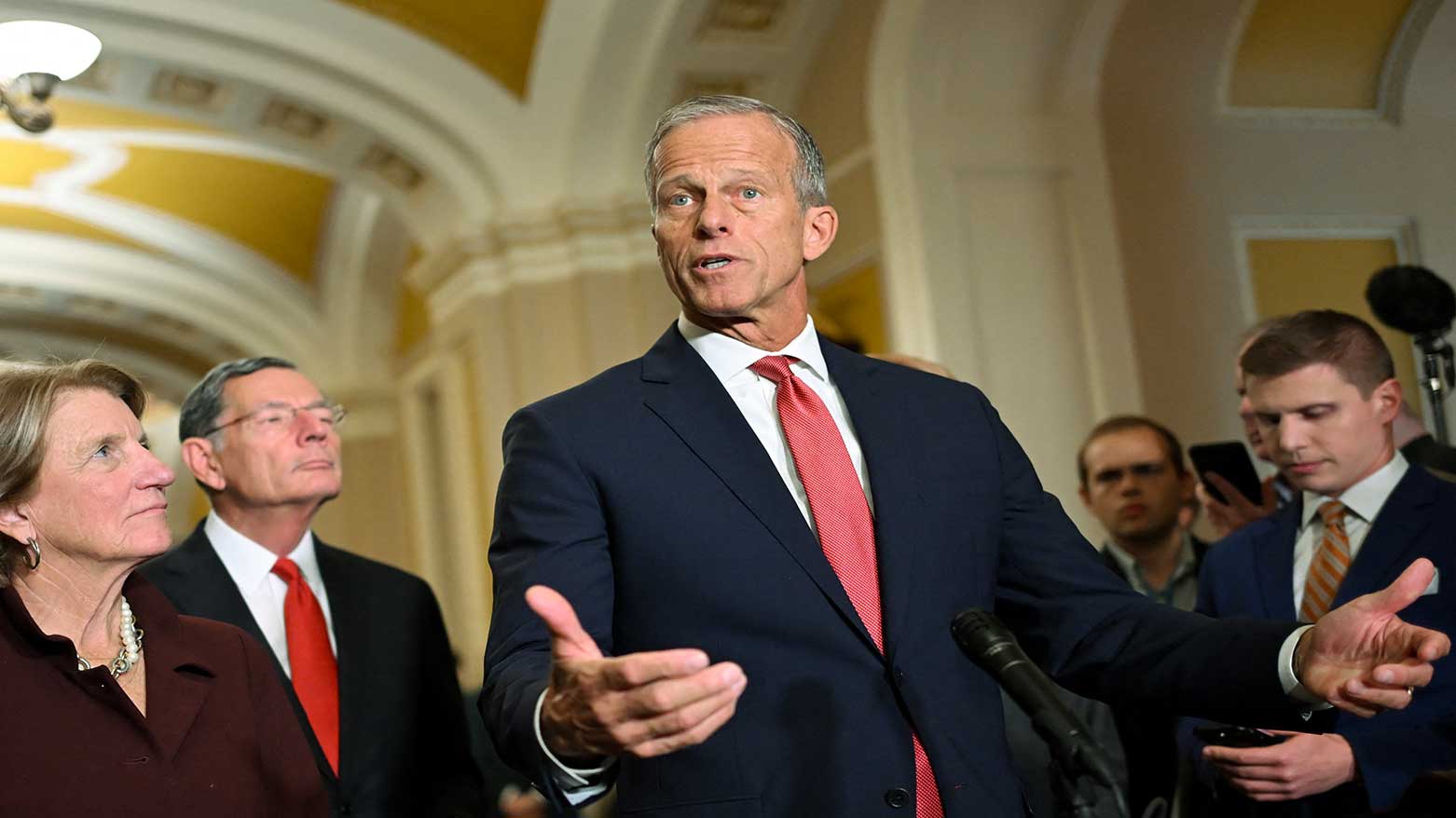Washington Shutdown Deepens Amid Partisan Deadlock, Shaking Global Confidence
A sustained shutdown would disrupt coordination with NATO allies, delay international intelligence-sharing, and undercut Washington’s ability to project stability abroad.

ERBIL (Kurdistan24) — The United States has entered its second week of a government shutdown that experts warn could stretch on for weeks, as deep partisan hostility between President Donald Trump’s Republicans and congressional Democrats pushes the world’s largest economy toward prolonged paralysis.
At the core of the deadlock is a Democratic demand to renew expiring healthcare subsidies for low-income Americans — a move the White House opposes.
With both camps unwilling to yield, critical government services have ground to a halt, leaving hundreds of thousands of federal employees without pay and threatening ripple effects far beyond Washington.
"The shutdown underscores a deepening partisan divide in Washington and immediately affects hundreds of thousands of federal employees, while disrupting vital public services across the country," said Tara Shwan, the Executive Director of the American-Kurdish Economic Institute (AKEI), in Washington DC.
According to Shwan, agencies such as the Department of Health and Human Services anticipate placing over 40% of their workforce on leave, which will significantly reduce public health monitoring, administrative services, and federally funded research.
“This shutdown could last weeks, not just days,” said Andrew Koneschusky, a former press secretary for Senate Democratic leader Chuck Schumer. “Right now, both sides are entrenched and there’s tiny serious talk of compromise.”
Shwan warned that airports may experience increased delays due to reduced staffing, while small businesses and local economies that rely on government operations are already bracing for disruption.
The shutdown is already reverberating through global markets and diplomatic circles. US embassies abroad are scaling back non-essential services, while American aid programs and security cooperation efforts are facing disruptions.
Observers warn that if the impasse drags on, it could weaken U.S. credibility among allies, delay overseas military logistics, and stall visa processing and consular operations vital for global trade and travel.
Treasury Secretary Scott Bessent has cautioned that an extended shutdown could weigh heavily on GDP growth, while market analysts fear rising Treasury yields and investor anxiety.
“If Wall Street gets spooked, even the most ideologically caffeinated will suddenly discover a deep commitment to bipartisan solutions,” said California-based economist Michael Ashley Schulman.
The Congressional Budget Office estimated that the 2018–2019 shutdown — the longest in US history at 35 days — cost the economy $11 billion, $3 billion of which was never recovered.
Analysts now warn that the current crisis, amid already fragile global growth, could have even broader consequences for international markets reliant on U.S. economic stability.
Trump has sought to shift responsibility onto Democrats, accusing them of “causing the loss of a lot of jobs” by blocking his funding proposal. On Sunday, he told reporters his administration had begun permanently firing — not merely furloughing — federal employees.
Democrats, meanwhile, argue that the president’s approach is reckless, prioritizing political theater over the welfare of millions of Americans.
The last time Democrats relented — during a similar standoff in March — they were met with backlash from their own supporters. This time, Schumer faces mounting pressure from progressives not to cave, especially as primary challenges loom from the party’s left flank.
Republicans, for their part, are betting that sustained pressure will eventually force Democrats to concede.
“I could see a temporary agreement coming from both parties by the end of October,” said Jeff Le, a former senior official in California politics. “Anything beyond that would halt government operations seriously and potentially impact national and homeland security considerations, casting blame on both sides.”
Political observers say Trump’s confrontational style is central to the escalating crisis. James Druckman, a professor at the University of Rochester, noted that the administration’s sense of “unchecked mandate” leaves little room for negotiation.
“Democrats were criticized for folding too easily last time,” Druckman said. “This time, they’re politically inclined to stand firm — even if it means enduring the pain.”
Still, not all experts expect a prolonged standoff. Aaron Cutler, a former congressional staffer and partner at Hogan Lovells, predicted the shutdown would last no more than 12 days. “Senate Democrats will blink first,” he said.
“While the shutdown continues, no hearings will be held, and much agency work will pause — that’s convenient for many Democrats, but they won’t want to shoulder the blame.”
Beyond domestic politics, the stakes for U.S. global leadership are profound. A sustained shutdown would disrupt coordination with NATO allies, delay international intelligence-sharing, and undercut Washington’s ability to project stability abroad.
Shwan warned that "the shutdown not only disrupts domestic governance but also weakens U.S. credibility abroad. From slowed diplomatic engagements to delays in foreign assistance and policy implementation, the reverberations will be felt well outside the United States."
Programs run by USAID and the State Department could face funding shortfalls, hampering humanitarian aid and foreign development initiatives in regions from Eastern Europe to Africa.
Diplomats warn that extended administrative paralysis could embolden U.S. rivals who view the gridlock as a symptom of American decline.
As the political standoff hardens, markets, allies, and adversaries alike are watching Washington’s next move — one that could determine not only the direction of U.S. domestic policy but also the credibility of its global leadership.